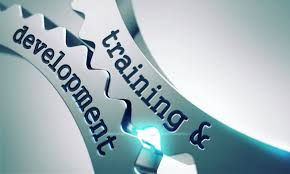Training

With so much information available, it is easier than ever for students to learn by themselves.
Self-study is becoming a more and more popular way to engage students with what they are learning in class. Students have the ability to access so many resources that now, learning can happen anywhere, anytime—not just in the classroom.
WHAT IS SELF STUDY?
Self-studying is a learning method where students direct their own studying—outside the classroom and without direct supervision. Since students are able to take control of what (and how) they are learning, self-study can be a very valuable way for many students to learn.
THE IMPORTANCE OF SELF-STUDY
Self-studying is a great method students can use to enhance their learning experience, whether they are studying for a course or learning about a topic for fun.
One of the major advantages of self-study is that students can take control over their own learning. And when students have control, they become even more interested in learning.
That’s good news for everyone!
THE BENEFITS OF SELF-STUDY FOR STUDENTS
1. Students learn more effectively: Self-studiers are able to think about topics more deeply and make connections between what they are learning. And when students are engaged (and excited) about what they are learning, they are able to remember it better.
Self-study also helps build study skills that can be used to explore new topics or tackle challenging courses.
2. It can boost students’ self-esteem: As students do more self-study, many become more confident learners. They are able to see themselves as an independent person who is able to learn new things without anyone helping them. This can be a major motivation boost for students.
3. Students can learn at their own pace: Self-study allows students to take learning at their own pace, focusing on areas they are most interested in (or want to understand a bit better). This helps reduce feelings of frustration, anxiety, or boredom that students may struggle with in a classroom setting.
4. Encourages curiosity: Curiosity is one of the biggest (and often overlooked) pieces of motivating students to learn. When students are not engaged with what they are learning, they absorb less of the information. They study to memorize rather than understand. Self-study allows students to choose something they are interested in and excited to learn about, leading to a more effective learning experience


